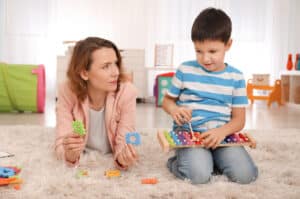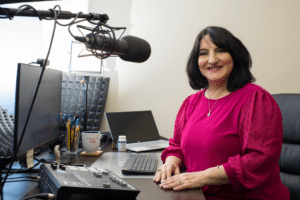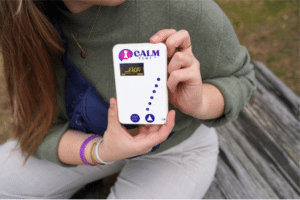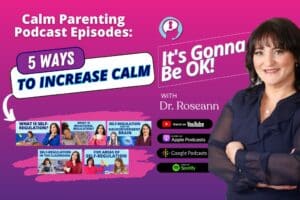Neurodiversity covers a range of neurological variations, including ADHD, autism spectrum disorder (ASD), dyslexia, Tourette's syndrome, and more. But rather than viewing these differences as deficits, the neurodiversity paradigm emphasizes that these variations are simply part of the natural diversity of human cognition and experience.
Famous People Who Are Neurodivergent
Many celebrities have played a crucial role in the neurodiversity movement by openly discussing their neurodivergence and helping to destigmatize these conditions. Let’s hear the stories of 10 neurodivergent celebrities and use their success as an inspiration.
Michael Phelps

Michael Phelps, the most decorated Olympian in history with 28 Olympic medals (23 of them gold), has been open about his diagnosis of ADHD. Phelps has achieved unparalleled success in the world of swimming.
His relentless work ethic, dedication to training, and extraordinary talent have propelled him to become one of the greatest athletes of all time. Phelps' ability to channel his energy and hyperfocus into his sport has been instrumental in his success.
Dan Aykroyd
Known for his roles in “Ghostbusters” and “Blues Brothers,” Aykroyd has Tourette's syndrome and Asperger's syndrome. He advocates for neurodiversity acceptance and his openness about this subject matter has helped raise awareness and promote acceptance in the entertainment industry and beyond.
Aykroyd has contributed to reducing the stigma surrounding Tourette's syndrome, Asperger's syndrome, and other neurodivergent conditions by advocating for a more inclusive and understanding society.
Daryl Hannah
Daryl Hannah, the talented actress and environmental activist, has spoken publicly about being diagnosed with Autism Spectrum Disorder. Her journey with autism has shaped both her personal and professional life.
While she initially struggled to understand her differences and cope with the challenges associated with autism, she has since embraced her neurodivergence and become an advocate for neurodiversity awareness.
Susan Boyle
Susan Boyle, the beloved Scottish singer who rose to fame on “Britain's Got Talent,” has been open about her diagnosis of Asperger's syndrome. Boyle's journey with Asperger's syndrome has been marked by both triumphs and challenges.
But despite facing obstacles related to her diagnosis, including struggles with social interactions and sensory sensitivities, Boyle found solace and expression through her passion for singing. Her authenticity and talent resonated with millions of people worldwide, challenging stereotypes and raising awareness about Asperger's syndrome and neurodiversity.
Simone Biles
Simone Biles, one of the most accomplished gymnasts in history, has spoken openly about her diagnosis of Attention Deficit Hyperactivity Disorder (ADHD). Biles' journey with ADHD has not deterred her from achieving extraordinary success in the world of gymnastics.
Despite the challenges associated with her diagnosis, including difficulties in maintaining focus and managing distractions, Biles has demonstrated remarkable resilience and determination throughout her career.
Biles' accomplishments on the gymnastics floor speak volumes about her talent, dedication, and unwavering commitment to excellence. She has shattered records, won numerous Olympic and World Championship medals, and redefined what is possible in the sport of gymnastics.
Tim Burton
Tim Burton, the visionary filmmaker known for his distinctive style and imaginative storytelling, has spoken candidly about his experiences with being ADHD and dyslexia neurodivergent. These conditions have undoubtedly influenced his artistic vision and storytelling style, contributing to his status as a visionary filmmaker
He has achieved remarkable success in the film industry, creating iconic movies such as “Edward Scissorhands,” “Beetlejuice,” and “The Nightmare Before Christmas.” His ability to think outside the box, embrace unconventional narratives, and create fantastical worlds has made him a celebrated figure in cinema.
Emma Watson
Emma Watson, the talented actress known for her role as Hermione Granger in the “Harry Potter” film series, has publicly discussed her experiences with Attention Deficit Hyperactivity Disorder.
Thought constantly coping with the challenges, she has achieved remarkable success both on and off the screen. She has demonstrated her talent and versatility as an actress in various film roles beyond “Harry Potter,” as well as her dedication to activism and advocacy for gender equality and women's rights.
Adam Levine
Adam Levine, the lead vocalist of the band Maroon 5 and a coach on the reality singing competition “The Voice,” has openly discussed his experiences with Attention Deficit Hyperactivity Disorder.
Having ADHD didn’t stop him from achieving significant success in the music industry. As the frontman of Maroon 5, he has won numerous awards, topped charts worldwide, and entertained audiences with his distinctive voice and charismatic stage presence.
Haley Joel Osment
Haley Joel Osment, the former child actor known for his roles in iconic films such as “The Sixth Sense” and “A.I. Artificial Intelligence,” has been candid about his neurodivergent journey, revealing his diagnoses of ADHD and dyslexia.
Osment’s successful career in the entertainment industry serves as a testament to his talent, resilience, and determination. His journey underscores the importance of support, understanding, and accommodation for individuals with neurodivergent disorders, highlighting that with the right resources and mindset, individuals can achieve their goals and thrive in their chosen paths.
Liv Tyler
Liv Tyler, the accomplished actress and model known for her roles in films such as “The Lord of the Rings” trilogy and “Armageddon,” has spoken openly about her experience with neurodivergent dyslexia.
For Liv Tyler, dyslexia presented challenges in her education and reading comprehension. Despite these difficulties, she has overcome them through perseverance, determination, and support from her family and educators.
Tyler has emphasized the importance of finding alternative learning strategies and accommodations to succeed academically and professionally. Her advocacy for dyslexia awareness and support highlights the importance of understanding and accommodating individuals with learning disabilities in academic and professional settings.
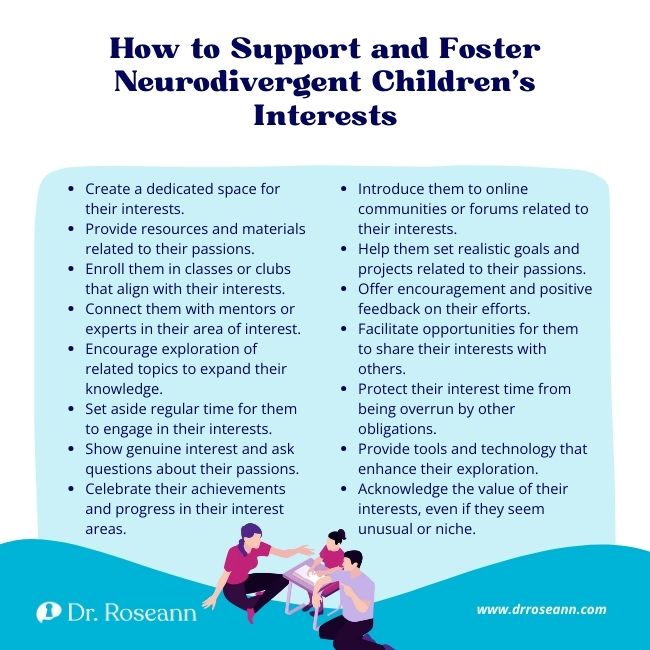
Support for Children with Neurodivergent Minds
The journey of parenting a neurodivergent child can be both rewarding and challenging. As parents, it's essential to understand and support your child's neurodivergence to help them thrive in a world that may not always be accommodating.
To do that, you must first educate yourself about your child's neurodivergence. Take the time to learn about its characteristics, strengths, and challenges. Understanding their condition will empower you to provide the best support and advocacy for your child.
Foster acceptance within your family. Emphasize to your child that their neurodivergence is a natural part of who they are and does not define their worth. Encourage self-acceptance and celebrate their unique strengths and talents.
Prioritize your child's mental health and emotional well-being. Keep a close eye on their mental health, encourage open communication, and seek professional help if needed. Remember that their emotional well-being is just as important as their academic or physical health.
Seek support from other parents of neurodivergent children. Join support groups, participate in online forums, or connect with local organizations. Sharing experiences and resources with others who understand can provide invaluable support and guidance.
Advocate for accommodations for your child. Work with their school and healthcare providers to ensure they receive appropriate support services, such as individualized education plans (IEPs), therapy, or assistive technologies (McCloskey, 2022).
Even so, encourage independence and self-advocacy in your child. Support them in developing skills for independence and encourage them to express their needs and preferences. Provide opportunities for them to take on responsibilities and make choices, empowering them to advocate for themselves (Saunders, 2018).
Finally, celebrate your child's achievements. Recognize and celebrate their accomplishments, no matter how small. Building their confidence and self-esteem is essential for their overall well-being and academic success. Take inspiration from the famous neurodivergent people listed above.
As neurodiversity gains recognition and acceptance, parents need to support and advocate for their neurodivergent children. By embracing their unique strengths and providing a nurturing environment, parents can help their children thrive and reach their full potential. Remember, every journey is unique, and with understanding, acceptance, and support, neurodivergent individuals can lead fulfilling and successful lives.
Are people with ADHD neurodivergent?
Yes, people with ADHD are considered neurodivergent. Some celebrities with autism and ADHD like Susan Boyle have managed to excel in their fields. While not all actresses with ADHD may disclose their ADHD diagnoses publicly, others like Emma Watson, have spoken about them openly.
Did Albert Einstein have ADHD?
There's speculation about Albert Einstein and ADHD, but there's no conclusive evidence. Many classify him among the famous people with autism and ADHD because he displayed characteristics consistent with these conditions, such as hyperfocus and unconventional thinking, and diagnosing historical figures posthumously.
What disability does Beetlejuice have?
Beetlejuice, a fictional character from the film of the same name, does not have a diagnosed disability. However, his eccentric behavior and unconventional thinking could be interpreted as examples of neurodivergence.
Was Andy Warhol autistic?
There is speculation that Andy Warhol may have been autistic, but there is no definitive evidence to confirm this. Despite this uncertainty, Warhol's unique artistic vision and unconventional approach to art have led some to consider him among the ranks of famous autistic people in history. Additionally, he was highly successful in his field, becoming one of the most influential and wealthiest artists of the 20th century, though whether he was the richest autistic person is subjective and difficult to quantify.
Was Steve Jobs dyslexic?
Yes, Steve Jobs, the co-founder of Apple Inc., was dyslexic. He is one of the most famous people with disability who went on to become one of the most successful and influential entrepreneurs of his time.
Is Bill Gates autistic?
There is no definitive evidence to suggest that Bill Gates has autism. While some speculate about his neurodivergence, particularly due to his intense focus and unconventional thinking, Gates has not publicly disclosed a diagnosis of autism.
How many people are neurodivergent these days?
It's challenging to provide how many people are on the neurodivergent list as neurodiversity encompasses a wide range of conditions Estimates suggest that a significant portion of the population is neurodivergent, but exact figures vary. However, most neurodivergents know that being a neurological divergent person is a natural part of human variation and that they contribute to the diverse ways individuals experience the world.
What are examples of being neurodivergent?
Neurodivergent examples include autism spectrum disorder (ASD), Attention Deficit Hyperactivity Disorder (ADHD), dyslexia, Tourette's syndrome, and bipolar disorder. A neurodivergent person may experience challenges in social interaction, communication, learning, or behavior due to differences in brain function.
Is Charlie from Perks of Being a Wallflower autistic?
Charlie’s character's struggles with mental health, trauma, and social adjustment are central themes in the book, but autism is not explicitly mentioned. Though Charlie is just a fictional character, many celebrities with disability don’t explicitly admit they are neurologically divergent.
Does Wednesday have autism?
It's not appropriate to diagnose fictional characters, like “Wednesday” from the Addams Family, with autism. However, there are celebrities with ADHD and autism who have spoken openly about their experiences. When famous people with ADHD and autism become open about their condition, they help raise awareness and reduce stigma.
Is neurodivergent a disability?
Neurodivergence refers to a natural variation in brain functioning, which can include conditions like autism and ADHD. While some may view neurodiverse people as having a disability, others see it as simply a different way of experiencing the world. There are a lot of successful autistic adults, such as Daryl Hannah and Susan Boyle.
What happened to Cara Delevingne mental health?
Cara Delevingne has been open about her struggles with mental health, including experiences with depression and anxiety. But after that infamous Cara Delevingne breakdown episode, she has used her platform to advocate for mental health awareness and has spoken about the importance of seeking help and support.
Is Edward Scissorhands autistic?
It's not explicitly stated in the film that Edward Scissorhands is autistic. However, some viewers have interpreted his character as representing traits commonly associated with autism, such as social awkwardness and difficulty with communication.
Citations
McCloskey, E. (2022). A world away from IEPs: How Disabled Students Learn in Out-of-School Spaces. Teachers College Press.
Saunders, P. (2018). Neurodivergent Rhetorics: Examining Competing Discourses of Autism Advocacy in the Public Sphere. Journal of Literary & Cultural Disability Studies, 12(1), 1–17. https://muse.jhu.edu/pub/105/article/686918/summary
Dr. Roseann is a mental health expert in Neurodivergence who frequently is in the media:
- CBS LA (Video) Therapists Look At The Effects The Coronavirus Pandemic Has Had On Children And Their Mental Health
- Forbes The Hidden Dangers Of Noise Pollution At Home
High School Mental Wheel (Podcast) Helping Young Adults Overcome Failure to Launch with
Always remember… “Calm Brain, Happy Family™”
Disclaimer: This article is not intended to give health advice and it is recommended to consult with a physician before beginning any new wellness regime. *The effectiveness of diagnosis and treatment vary by patient and condition. Dr. Roseann Capanna-Hodge, LLC does not guarantee certain results.
Are you looking for SOLUTIONS for your struggling child or teen?
Dr. Roseann and her team are all about science-backed solutions, so you are in the right place!
Grab your complimentary copy of
147 Therapist-Endorsed Self-Regulation Strategies for Children: A Practical Guide for Parents
Dr. Roseann is a Children’s Mental Health Expert and Licensed Therapist who has been featured in/on hundreds of media outlets including The Mel Robbins Show, CBS, NBC, PIX11 NYC, Today, FORBES, CNN, The New York Times, The Washington Post, Business Insider, Women’s Day, Healthline, CNET, Parade Magazine and PARENTS. FORBES called her, “A thought leader in children’s mental health.”

She coined the terms, “Re-entry panic syndrome” and “eco-anxiety” and is a frequent contributor to media on mental health.
Dr. Roseann Capanna-Hodge has three decades of experience in working with children, teens and their families with attention-deficit hyperactivity disorder (ADHD), autism, concussion, dyslexia and learning disability, anxiety, Obsessive Compulsive Disorder (OCD), depression and mood disorder, Lyme Disease, and PANS/PANDAS using science-backed natural mental health solutions such as supplements, magnesium, nutrition, QEEG Brain maps, neurofeedback, PEMF, psychotherapy and other non-medication approaches.
She is the author of three bestselling books, It’s Gonna Be OK!: Proven Ways to Improve Your Child's Mental Health, The Teletherapy Toolkit, and Brain Under Attack. Dr. Roseann is known for offering a message of hope through science-endorsed methods that promote a calm brain.
Her trademarked BrainBehaviorResetⓇ Program and It’s Gonna be OK!Ⓡ Podcast has been a cornerstone for thousands of parents facing mental health, behavioral or neurodevelopmental challenges.
She is the founder and director of The Global Institute of Children’s Mental Health, Neurotastic™Brain Formulas and Dr. Roseann Capanna-Hodge, LLC. Dr. Roseann is a Board Certified Neurofeedback (BCN) Practitioner, a Board Member of the Northeast Region Biofeedback Society (NRBS), Certified Integrative Mental Health Professional (CIMHP) and an Amen Clinic Certified Brain Health Coach. She is also a member of The International Lyme Disease and Associated Disease Society (ILADS), The American Psychological Association (APA), Anxiety and Depression Association of America (ADAA) National Association of School Psychologists (NASP), International OCD Foundation (IOCDF).
© Roseann-Capanna-Hodge, LLC 2024



